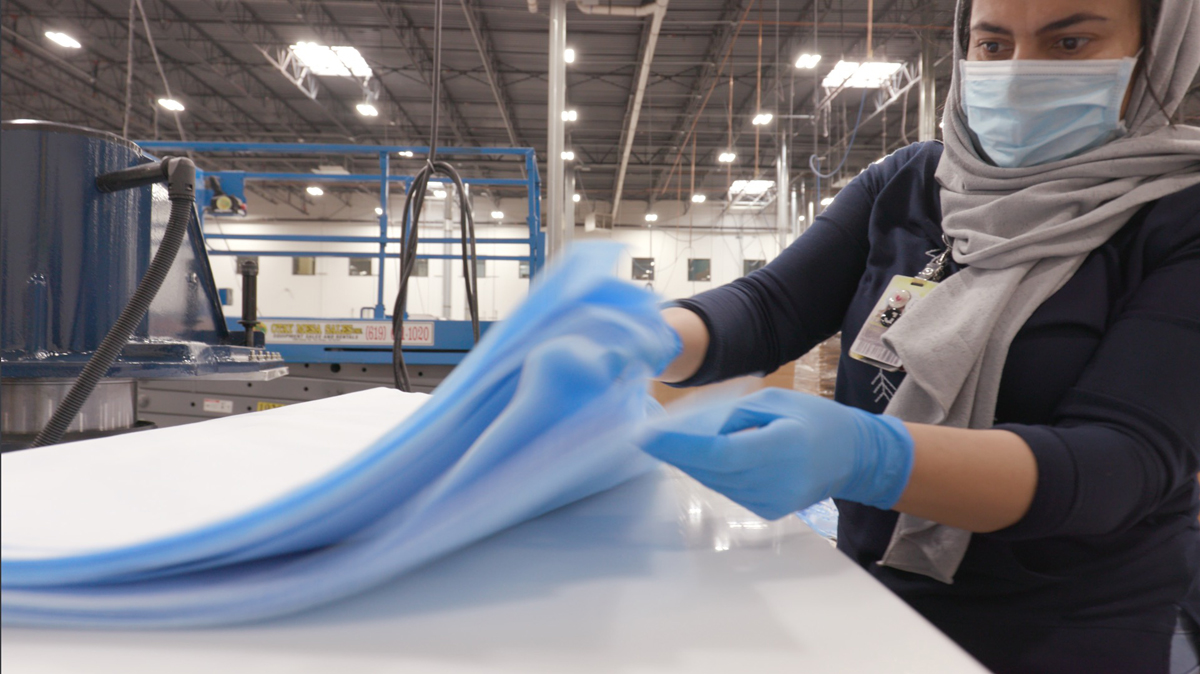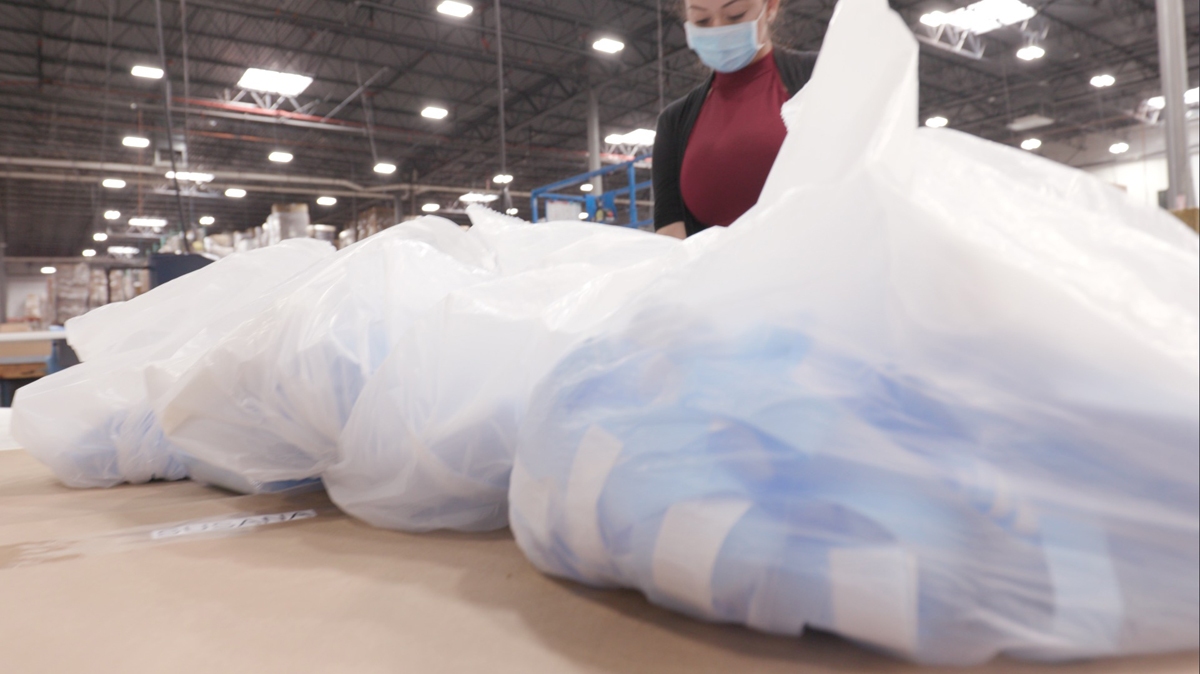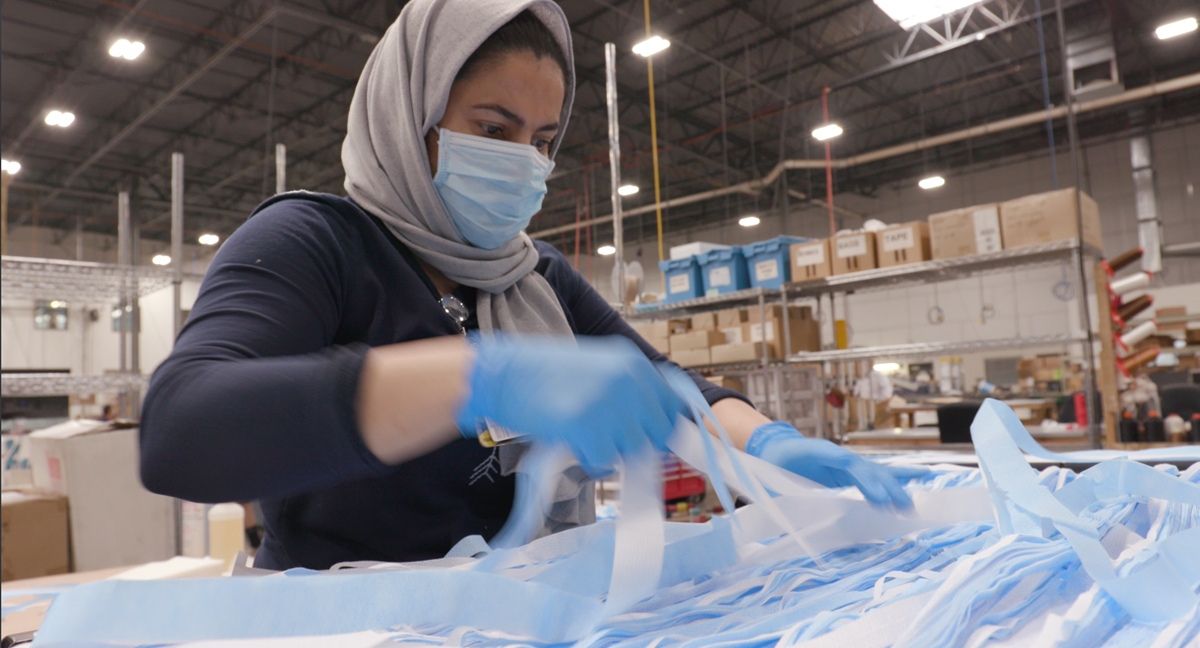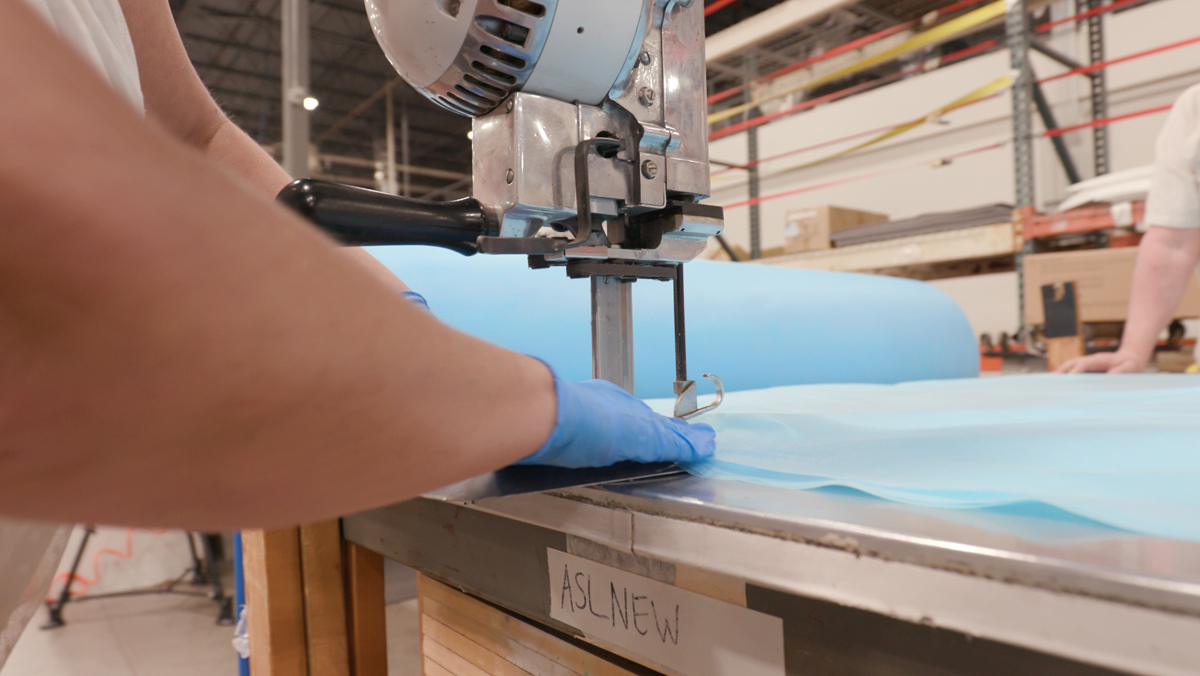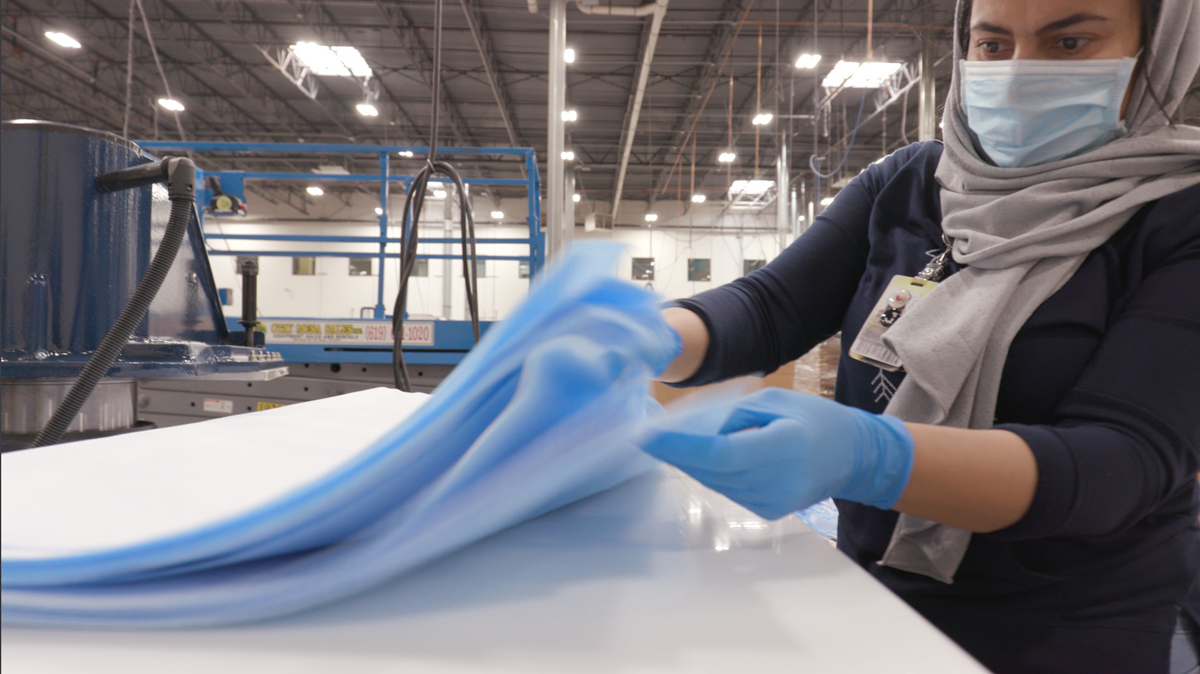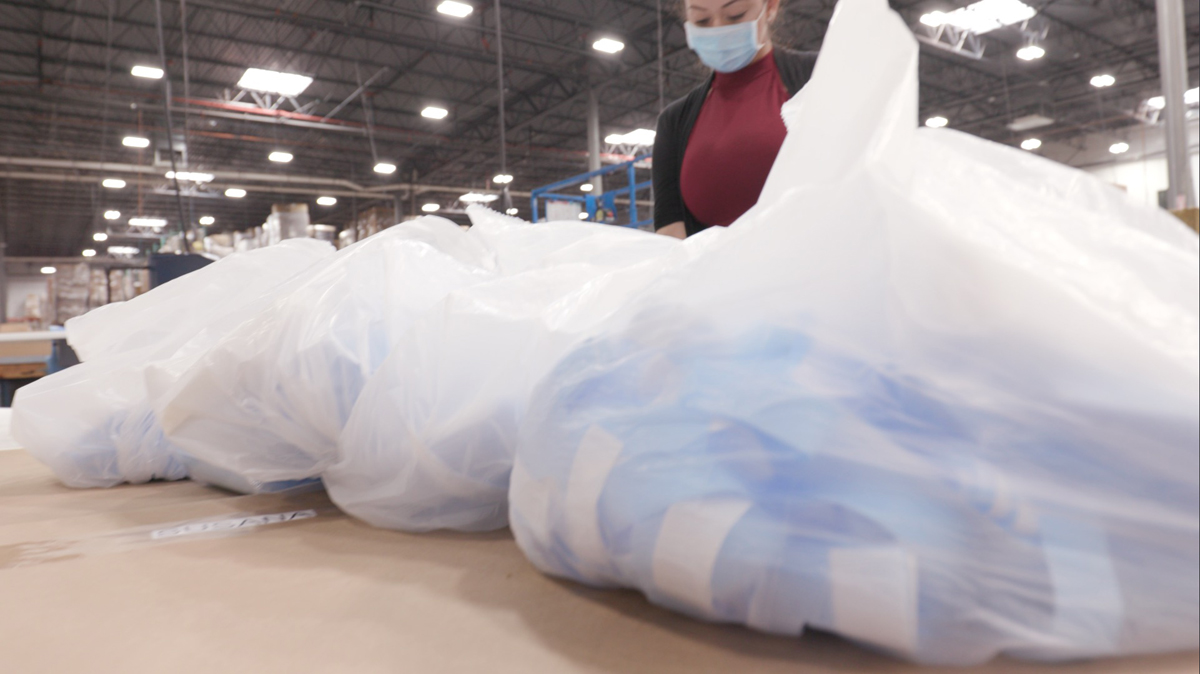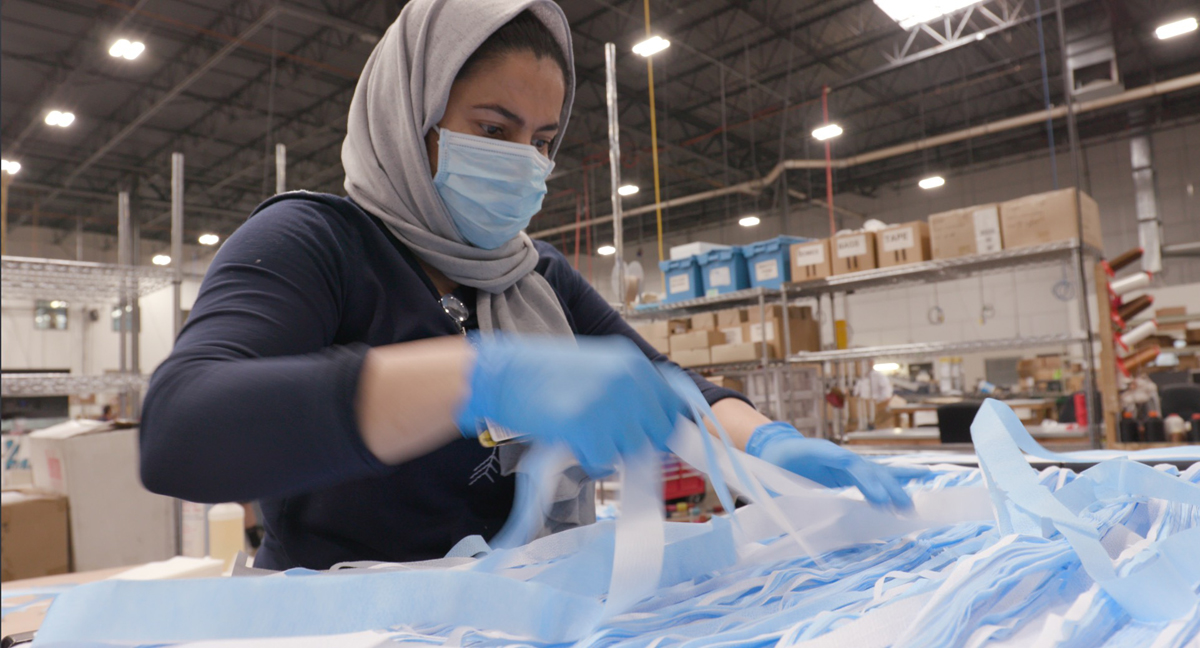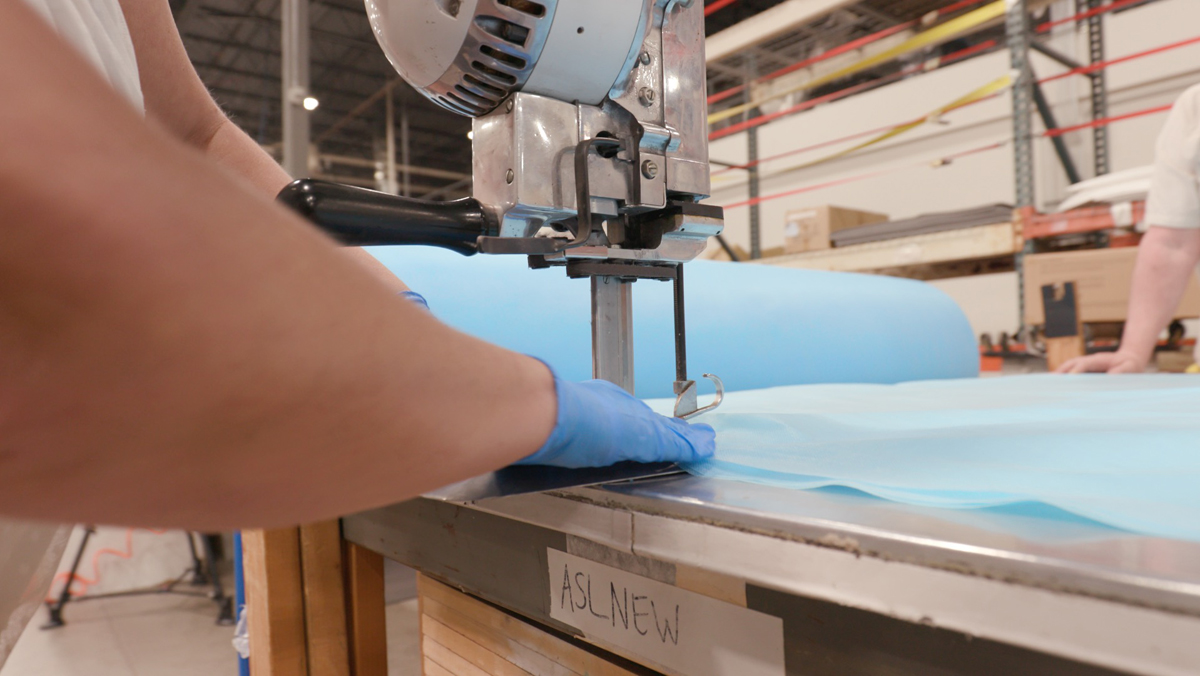SnugZ USA, Gildan Activewear Rise To Meet The Increasing Demand For PPE
This week, supplier SnugZ USA has added a new, critical project to its production schedule. The West Jordan, Utah-based company will be die-cutting and kitting the first one million pieces of a five-million-piece order of medical-grade facemasks for use by doctors, nurses and medics fighting COVID-19 on the frontlines within the Utah-based Intermountain Healthcare Network (IHC) of hospitals and clinics, and the University of Utah Health Affiliate Network. Personal protective equipment (PPE) is currently in high demand by health-care workers and the public around the globe.
The SnugZ team will be die-cutting the masks, as pictured here, from medical grade non-woven polypropylene, kitting them and providing the logistics to get the masks to a distribution center. Once there, the Church of Jesus Christ of Latter-day Saints is providing, through its resources, home-based volunteers who will sew and assemble the masks. When completed, the masks will be sterilized and distributed.
“This is ‘go’ week for us,” says SnugZ President Brandon Mackay, MAS. “We’re to produce a million mask kits to go to back to IHC to be prepped for distribution next Monday and five million masks in [the next] five weeks. This has been a massive project. We’ll be working 24/6 to hit this goal.”
Mackay says two employees are working full time on this project and he has deployed $60,000 in capital expense to prepare to fulfill the order. The company produced a short video to document this project and also to show sewing of some masks for employees, family and friends.
Supplier Gildan Activewear Inc. has joined forces with various business partners to leverage its manufacturing facilities to produce non-medical facemasks and isolation gowns.
Gildan is working with one of its distributors to support a cooperative consortium of major apparel and textile companies to help produce non-medical face masks to be distributed to support hospitals, health-care workers and others battling the spread of the virus. Both the design and textile fabric to be used in the production of these masks are being provided by partners of the consortium who are working in collaboration to lessen the major shortage of face masks. Gildan is also working with a retail partner to produce non-medical face masks primarily intended for health-care organizations worldwide. This initiative includes manufacturing the required textile for the production of these masks. Moreover, the company is also working with another retail partner to manufacture isolation gowns to be distributed to the health-care sector to help address the current shortage of personal protective equipment.
Gildan has received authorization from the Honduras government to partially reopen one of its textile facilities to produce the fabric needed for the masks and gowns, and one of its sewing facilities in Honduras for the assembly of these products. To ensure the health and safety of its employees, Gildan has mobilized a team of experts and is developing and implementing stringent processes to protect employees who have chosen to come back to work on this effort. The facilities that will be reopened for the production of personal protective equipment will all operate under a strict biosecurity protocol developed following government mandated guidelines and industry best practices.
“As an organization, we are committed to playing a proactive role in supporting the shortage of personal protective equipment needed in the global fight against this pandemic,” says Glenn Chamandy, president and CEO of Gildan. “I want to thank our partners and everyone at Gildan who have been working diligently to get the required authorizations and plans in place to start the production of these much-needed items, and especially the facility workers who have volunteered to work to produce these products.”


